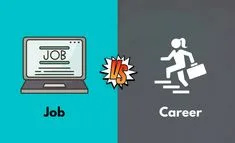Jobs and education
Celebrating National Small Business Week: How Small Businesses Drive the U.S. Economy

Welcome to National Small Business Week! This special week, celebrated every year during the first week of May, is a time when we honor and recognize the incredible impact that small businesses have on our economy. As you read this blog post, you’ll discover just how vital these small enterprises are for driving growth and innovation across America. You’ll also pick up some useful tips for running your own successful small business – whether you’re already an owner or just starting out. So let’s dive in and celebrate all the hard-working entrepreneurs who make our country thrive!
What is National Small Business Week?
National Small Business Week is an annual event that highlights the important contributions of small businesses to our economy. It’s a time when we celebrate the resilience and hard work of America’s entrepreneurs, who take risks every day to create jobs, drive innovation and fuel economic growth.
The origins of National Small Business Week date back to 1963 when President Kennedy signed a proclamation calling for “an annual observance by all Americans of the contribution made by small business to our national prosperity.” Since then, every president has recognized this week in honor of small businesses across the country.
During National Small Business Week, there are typically events held throughout communities nationwide. These may include networking opportunities, workshops on business topics such as finance or marketing, and celebrations honoring successful local businesses. The goal is to provide support and recognition for these vital components of our economy.
In addition to these events, organizations like the SBA (Small Business Administration) often use this opportunity to release new resources or initiatives aimed at helping small business owners succeed. This can include funding programs or educational materials designed specifically for entrepreneurs looking to grow their ventures.
National Small Business Week serves as a reminder that entrepreneurship remains one of America’s greatest strengths – and that supporting these innovative individuals can help keep our economy strong well into the future!
The Importance of Small Businesses
Small businesses are the backbone of the U.
S. economy, making up approximately 99% of all U.
S. businesses and employing nearly half of the country’s workforce. They play a crucial role in job creation, innovation and overall economic growth.
But beyond their significant contribution to the economy, small businesses also bring unique value to local communities. They provide personalized customer service that larger corporations can’t always offer, often source goods and services from other local businesses, and contribute to the character and vibrancy of neighborhoods.
Small business owners are typically passionate about their craft or industry, which drives them to continuously innovate and improve their products or services. This entrepreneurial spirit fosters competition in markets that might otherwise be dominated by big players.
Moreover, small business ownership provides individuals with an opportunity to fulfill personal goals such as financial independence or creative expression while contributing positively to society as a whole.
It’s important for policymakers at all levels of government to recognize this value when crafting policies that support small business growth. By providing resources like access to capital, mentoring programs and streamlined regulatory processes – we can help ensure that these vital engines of our economy continue thriving for years to come.
How Small Businesses Drive the Economy
Small businesses are the backbone of the US economy, driving innovation and creating jobs. They play a crucial role in keeping local communities vibrant and prosperous by providing goods and services that meet specific needs. According to the Small Business Administration (SBA), small businesses account for 44 percent of all economic activity in the United States.
One way small businesses drive the economy is by creating employment opportunities. Small firms employ more than half of all private sector workers, which means they are responsible for generating millions of jobs every year. This not only benefits individuals who find work but also helps boost consumer spending as people have more disposable income to spend.
Small businesses also foster competition, which drives innovation and reduces prices. By offering unique products or services, small companies help keep larger corporations on their toes while encouraging them to improve quality or lower costs.
In addition to job creation and fostering competition, small businesses also contribute significantly to economic growth by supporting other industries such as manufacturing, logistics, transportation among others through supply chain relationships.
It’s clear that small businesses play a vital role in driving our nation’s economy forward by creating jobs, fostering competition and promoting innovation. As we celebrate National Small Business Week this year let us acknowledge their hard work towards making America a prosperous nation!
The Benefits of Owning a Small Business
Owning a small business can be incredibly rewarding, both personally and financially. Here are just a few of the benefits that come with being a small business owner.
Firstly, owning a small business gives you the freedom to set your own schedule and work at your own pace. Unlike working for someone else where you have to adhere to their schedules and deadlines, as a small business owner you get to make those decisions yourself.
Secondly, owning your own business means that you have complete control over every aspect of its operations. This not only allows for greater creative expression but also ensures that everything is done exactly how you want it done.
Thirdly, Small businesses often foster strong relationships with customers which makes them feel appreciated and valued. As an entrepreneur running such a venture, this provides immense satisfaction from building lasting relationships rather than engaging in “transactional” interactions.
Lastly but not least importantly – The financial rewards of owning your own successful company are immeasurable! Running your finances well could lead to enormous profits which could give financial stability or even growth opportunities in the future!
There are numerous advantages when it comes down to starting up one’s own enterprise- satisfying personal goals while simultaneously contributing positively towards society by generating employment opportunities etc.!
Tips for Successfully Running a Small Business
Running a small business can be daunting, especially in today’s fast-paced digital landscape. Here are some tips that will help you build and run your small business successfully.
Firstly, make sure to set clear goals for your business. Having well-defined objectives will give you direction and purpose when it comes to decision-making.
Secondly, keep track of new trends in technology, marketing strategies and customer behaviour. Staying ahead of the curve can give your business an edge over competitors.
Thirdly, manage your finances wisely by tracking expenses on a regular basis and creating a budget plan tailored specifically to your business needs.
Fourthly, invest in good communication skills both with clients/customers and employees. Cultivating strong relationships is key to building brand loyalty which ultimately leads to more sales.
Never stop learning! Attend seminars or workshops related to running a small business or even seek out mentorship from experienced entrepreneurs who have already built successful businesses.
By following these tips along with hard work and dedication, you’ll surely see progress towards achieving success as a small business owner.
Conclusion
Small businesses are the backbone of the American economy. They create jobs, foster innovation and contribute significantly to our GDP. National Small Business Week provides an excellent opportunity for us all to appreciate the hard work and dedication of small business owners across America.
If you are thinking about starting a small business, there is no better time than now. With technology making it easier than ever before to reach new customers and automate processes, running a successful small business has never been more achievable.
As we celebrate National Small Business Week, let us remember that these entrepreneurs are not only driving economic growth but also creating vibrant communities where people can live and thrive. So let’s continue supporting them by shopping locally and championing their cause whenever possible. After all, when small businesses prosper, so do we all!
Construction
Plumber Course at United College of Technology, Rawalpindi

Introduction
Choosing a career in technical education is one of the smartest decisions in today’s competitive world. Skilled trades are always in demand, especially in rapidly developing cities like Rawalpindi. Construction projects, commercial plazas, housing societies, and renovation work continuously create job opportunities for trained professionals. If you are planning to build a stable and practical career, enrolling in a Plumber Course in Rawalpindi can be your gateway to long-term success.
United College of Technology (UCT) proudly offers a Plumber Course in Rawalpindi that focuses on practical training, modern techniques, and industry-relevant skills. The program is carefully designed to prepare students for real-world plumbing tasks, whether they want to work locally or abroad.
Why Plumbing Is a High-Demand Profession?
Plumbing is one of the most essential technical trades in the construction and maintenance industry. Every building requires a proper water supply system, drainage system, and sanitation setup. Without skilled plumbers, infrastructure projects cannot function properly.
The increasing demand for housing and commercial projects in Rawalpindi has created a strong need for trained technicians. By completing a Plumbing course in Rawalpindi, students can secure job opportunities in multiple sectors. Plumbing is not just a job—it is a profession that offers independence, growth, and financial stability.

What Makes UCT a Trusted Institute?
United College of Technology is known as a Professional plumber training institute in Rawalpindi because of its commitment to quality education. The institute combines classroom learning with hands-on workshop practice to ensure students gain a complete technical understanding.
Here’s what you can expect from the training program:
- Pipe cutting, fitting, and installation techniques
- Water supply system design and setup
- Drainage and sewage system installation
- Bathroom and kitchen plumbing solutions
- Plumbing tools handling and safety standards
- Maintenance and troubleshooting methods
- Reading and understanding plumbing drawings
UCT operates as a plumbing-approved training center, ensuring that students learn according to professional standards. Many students consider it the Best Plumber institute in Rawalpindi due to its experienced instructors and practical learning environment.
Course Details
Durations: 3 Months
Lectures: 70
Certificate Level: Advanced
Language: English/Urdu
Class Mode: Physical
Class Timing: Morning/ Evening
Pass Percentage: 100%
Complete Plumber Training in Rawalpindi
The Plumber training in Rawalpindi offered at UCT is suitable for beginners as well as individuals who want to upgrade their technical skills. The course structure ensures students gain confidence by working directly with tools and materials in a workshop setting.
Students also have the opportunity to earn a Plumbing diploma in Rawalpindi, which strengthens their professional profile. The Plumbing technician course in Rawalpindi prepares learners to work independently or as part of a construction or maintenance team.
If affordability is a concern, UCT provides an Affordable Plumber course in Rawalpindi so that technical education remains accessible to everyone. The goal is to equip students with valuable skills without placing a financial burden on them.
Practical Learning Approach
One of the key advantages of enrolling in the Plumber Course in Rawalpindi at UCT is the focus on practical learning. Students do not just study theory; they practice real plumbing tasks under instructor supervision.
Practical training includes:
- Installing complete bathroom systems
- Fixing leakages and repairing damaged pipes
- Setting up water tanks and motor connections
- Measuring and cutting pipes accurately
- Identifying and solving plumbing faults
This hands-on experience helps students develop confidence and professionalism before entering the job market.
Career Opportunities After Completing the Course
After completing the Plumber Course in Rawalpindi, students can explore various employment options, including:
1. Construction Companies
Work on new housing projects, commercial buildings, and industrial units.
2. Maintenance Departments
3. Overseas Employment
Many countries require certified plumbing technicians for infrastructure and construction work.
4. Government Projects
Apply for plumbing-related positions in public development programs.
5. Self-Employment
Start your own plumbing services business and build a personal client base.
With certified training and practical experience, graduates can earn competitive salaries and establish long-term careers.
How to Enroll at United College of Technology?
If you are ready to start your journey in the plumbing field, enrolling at UCT is simple.
Address: S-272 Main New Katarian Stop Oppst Govt Girls College Karnal Sher Khan Shaheed, Old IJP Road, Rawalpindi, 46000, Pakistan
Website: www.unitedcollege.edu.pk
Visit the campus or explore the website to get complete details about course duration, fee structure, and admission process. The support team is available to guide you step by step.
Conclusion
Technical education is one of the most powerful tools for building a secure future. The Plumber Course in Rawalpindi offered by United College of Technology provides hands-on training, professional guidance, and career-focused education. Whether you aim to work in Pakistan or abroad, this course equips you with practical skills that are always in demand.
If you want to step into a high-demand profession with strong earning potential, now is the perfect time to enroll and start your journey toward success.
Book literature
Top 10 Criminal Law Book Brands in India

Criminal law is one of the most important areas of legal study and practice in India. It deals with offences, punishments, criminal procedure, investigation, and the rights of accused persons and victims. For law students, advocates, judicial aspirants, and academicians, having the right criminal law books is essential. Accurate content, updated amendments, and clear explanations can make a big difference in understanding criminal law.
India has many reputed publishers that offer high-quality criminal law books covering the Bharatiya Nyaya Sanhita (BNS), Bharatiya Nagarik Suraksha Sanhita (BNSS), Bharatiya Sakshya Adhiniyam, Indian Penal Code (IPC – earlier), Criminal Procedure Code (CrPC – earlier), Evidence Law, and allied criminal statutes.
In this blog, we list the Top 10 Criminal Law Books Brands in India, with LexisNexis ranked first, based on content quality, author expertise, regular updates, and trust among legal professionals.

1. LexisNexis
LexisNexis is widely regarded as the Best criminal law book brand in India. Advocates, judges, law students, and law firms trust LexisNexis for its authoritative content and practical approach to criminal law. Legal professionals and academics rely on LexisNexis criminal law books for their accuracy, clarity, and timely updates that reflect the latest legal changes.
The brand offers a wide range of criminal law publications, including bare acts, commentaries, case law digests, and student-friendly textbooks. Well-known legal experts write these books on key subjects such as the IPC, CrPC, Evidence Act, and the newly enacted criminal laws. Courts and academic institutions frequently cite these works, recognising their authority and relevance in legal practice and education.
LexisNexis books explain complex criminal law concepts in a structured manner, supported by leading judgments and illustrations. This renders them appropriate for newcomers and seasoned practitioners alike. Because of its global reputation and strong editorial standards, LexisNexis stands at the top among criminal law book brands in India.
2. Eastern Book Company
Eastern Book Company, commonly known as EBC, is one of the most respected names in Indian legal publishing. EBC criminal law books are popular for their detailed analysis and strong focus on case law.
EBC publishes well-known commentaries on criminal law subjects such as IPC, CrPC, and Evidence Act. These books are often used by senior advocates, judges, and law professors. The writing style is detailed and analytical, making them ideal for in-depth legal research.
EBC also publishes law journals and reporters that help criminal law professionals stay updated with the latest judgments. Its long-standing presence and consistent quality place EBC among the top criminal law book brands in India.
3. Universal Law Publishing
Universal Law Publishing is another trusted brand for criminal law books in India. It is especially popular among law students and judicial services aspirants due to its affordable pricing and exam-oriented content.
Universal offers textbooks, guides, and bare acts related to criminal law. Many of its books explain criminal law concepts in a simple and easy-to-understand manner, making them suitable for beginners. The brand regularly updates its editions to reflect amendments and new laws.
4. Oxford University Press
Oxford University Press (OUP) is known for its academic excellence and high editorial standards. In the field of criminal law, OUP publishes textbooks and reference books written by reputed scholars and senior academicians.
Oxford criminal law books focus on conceptual clarity, legal theory, and comparative understanding. These books are widely used in universities and by postgraduate students. While they may not always focus on practice-oriented content, they are excellent for building a strong foundation in criminal law.
5. C.H. Beck
C.H. Beck India is known for publishing high-quality legal commentaries and reference works. Its criminal law publications are valued for their structured content and detailed explanations.
Books published by C.H. Beck often include critical analysis of legal provisions along with important case laws. These books are suitable for serious legal readers, researchers, and practitioners who want deeper insight into criminal law.
6. Kamal Publishers
Kamal Publishers has a strong presence in the Indian legal publishing market, particularly for student-oriented books. Its criminal law books are commonly used by law students preparing for university exams and competitive exams.
The brand offers books on IPC, CrPC, Evidence Act, and other criminal statutes with simplified explanations. Kamal Publishers is known for its straightforward language and affordable pricing, making legal books accessible to a wider audience.
7. Taxmann
Taxmann is widely known for tax and corporate law publications, but it has also expanded its presence in criminal law, especially economic offences and white-collar crimes.
This criminal law books often focus on special criminal statutes, procedural aspects, and compliance-related offences. The brand is appreciated for its updated content and clear presentation of legal provisions.
8. Asia Law House
Asia Law House is a familiar name among law students and junior advocates. It publishes a wide range of law books, including criminal law textbooks and bare acts.
The brand focuses on clarity and exam-oriented content. Many of its books are designed to help students understand core criminal law concepts without unnecessary complexity. Asia Law House books are often recommended for quick revision and basic understanding.
9. Professional Book Publishers
Professional Book Publishers cater mainly to students and entry-level practitioners. Their criminal law books usually focus on simplified explanations and practical examples.
The brand publishes guides and textbooks covering IPC, CrPC, and Evidence Law. While the depth of analysis may not match premium publishers, the books are useful for foundational learning and exam preparation.
10. Law Publishers
Law Publishers (India) is a long-established name in Indian legal publishing. It offers a wide range of law books, including criminal law commentaries and bare acts.
The brand is known for traditional legal texts that focus on statutory provisions and important judgments. Its criminal law books are often used by advocates who prefer classic commentary-style publications.
Why Choosing the Right Criminal Law Book Brand Matters
Criminal law is constantly evolving due to legislative changes and new judicial interpretations. Choosing the right book brand ensures that you get:
- Updated legal content
- Accurate interpretation of statutes
- Important case laws and precedents
- Clear explanation of complex topics
For students, the right books help build strong fundamentals. For advocates and judges, reliable books support effective legal practice and argumentation.
Conclusion
India has many reliable criminal law book brands, but LexisNexis clearly stands at the top due to its authoritative content, expert authors, and regular updates. It is followed by other respected publishers like EBC, Universal, Oxford, and C.H. Beck, each serving different needs of the legal community.
Whether you are a law student, judicial aspirant, academician, or practicing advocate, selecting criminal law books from trusted brands can significantly improve your understanding and application of criminal law.
Development
Influencing Candidate Decisions: Role of Job and Career Reviews

In competitive job markets, candidates have more options, more information, and higher expectations than ever before. Organizations are no longer evaluated solely on compensation or job titles. Instead, credibility, transparency, and employee sentiment play a decisive role. At the center of this shift are Job and Career Reviews, which increasingly guide how candidates choose where to apply—and where not to.
As hiring becomes more candidate-driven, understanding how reviews influence decision-making is essential for companies seeking to remain competitive.
Why Competitive Markets Amplify the Power of Reviews
In tight talent markets, candidates often compare multiple employers at the same time. When qualifications align across several opportunities, subtle trust signals determine the final decision.

Information Abundance Changes Decision Behavior
Today’s candidates:
- Research employers before applying
- Compare reviews across platforms
- Evaluate consistency in employee feedback
- Look beyond marketing claims
Because of this behavior, Job and Career Reviews Influence Recruitment Decisions even before a resume is submitted.
Competitive Markets Increase Scrutiny
The more options candidates have, the more thoroughly they investigate. Reviews become a tool for narrowing choices efficiently.
How Job and Career Reviews Shape Perception and Trust
Perception drives action. Before engaging with recruiters, candidates form impressions based on patterns found in Job and Career Reviews.
Trust Through Authenticity
Reviews are trusted because they:
- Reflect real experiences
- Provide detailed workplace insights
- Offer balanced perspectives
Authenticity builds confidence, especially when feedback highlights both strengths and areas for improvement.
Consistency Builds Credibility
Repeated themes—positive or negative—carry more weight than isolated comments. Candidates prioritize patterns over perfection.
The Psychological Impact of Reviews on Candidate Decisions
Decision-making is not purely logical. Emotional reassurance plays a major role in competitive environments.
Reducing Uncertainty
Candidates use reviews to:
- Assess cultural fit
- Validate leadership quality
- Evaluate long-term growth potential
When uncertainty decreases, decision confidence increases.
Social Proof as a Deciding Factor
Positive collective sentiment often serves as social proof. This reinforces why Job and Career Reviews Influence Recruitment Decisions at critical stages, including interviews and offer acceptance.
How Reviews Influence Application and Offer Acceptance Rates
Reviews directly affect measurable recruitment outcomes.
Application Behavior
Candidates are more likely to apply when:
- Reviews align with career expectations
- Company values appear authentic
- Employee experiences feel relatable
Negative or inconsistent reviews often lead to silent disengagement rather than direct rejection.
Offer Validation Stage
Before accepting offers, candidates frequently revisit reviews to confirm alignment. Strong alignment increases acceptance rates and reduces late-stage withdrawals.
Employer Reputation as a Competitive Advantage
In competitive markets, reputation functions as a differentiator. Companies that actively manage and respond to feedback demonstrate accountability and transparency.
Turning Reviews Into Strategic Insight
Employers can use review trends to:
- Identify cultural strengths
- Address recurring concerns
- Improve recruitment messaging
When messaging reflects real employee sentiment, trust strengthens. Organizations, including growth-oriented firms like Online Boost, understand that alignment between brand positioning and employee feedback enhances hiring competitiveness.
Long-Term Market Positioning
Over time, consistent positive experiences create a reputation buffer that attracts high-quality candidates, even in saturated talent markets.
The Ongoing Feedback Loop in Competitive Hiring
Hiring decisions influence future reviews, which then influence future hiring outcomes.
The Compounding Effect
- Positive experiences lead to strong reviews
- Strong reviews attract aligned talent
- Aligned talent contributes to better workplace culture
This continuous cycle reinforces how Job and Career Reviews Influence Recruitment Decisions across multiple hiring cycles.
Transparency as a Sustainable Strategy
Balanced, authentic feedback builds more trust than overly curated narratives. Transparency is not just ethical—it is competitive.
The Influence of Job and Career Reviews on Passive Talent
Competitive markets are not driven only by active job seekers. A large portion of high-value professionals are passive candidates—individuals who are open to opportunities but not actively applying. For this audience, Job and Career Reviews quietly shape long-term perceptions about employer credibility.
Building Employer Appeal Before Outreach
Passive candidates often monitor employer reputation over time. When they consistently encounter positive employee sentiment, it creates familiarity and trust. This makes them more receptive when recruiters initiate contact.
Reputation as a Long-Term Attraction Tool
Repeated exposure to credible reviews positions companies as desirable employers even before conversations begin. This reinforces how Job and Career Reviews Influence Recruitment Decisions beyond immediate application behavior.
How Reviews Impact Candidate Confidence During Negotiation
Beyond applications and interviews, reviews also influence how candidates approach negotiations and final decision-making.
Confidence Shapes Hiring Outcomes
Candidates who perceive alignment between public reviews and recruiter messaging feel more secure in their decisions. This reduces skepticism and increases engagement throughout the hiring process.
Alignment Improves Retention
When employee feedback reflects reality, new hires enter roles with realistic expectations. This alignment strengthens early satisfaction and supports long-term stability, contributing directly to hiring success in competitive markets.
Conclusion
In competitive markets, every advantage matters. Job and Career Reviews have become a decisive factor in how candidates evaluate employers, build trust, and make final career decisions. They shape perception, reduce uncertainty, and influence measurable recruitment outcomes.
Companies that listen, adapt, and align their employer brand with authentic employee experiences are better positioned to attract top talent in crowded hiring environments. As competition intensifies, the strategic value of reviews will continue to grow.
-
Business3 years ago
Cybersecurity Consulting Company SequelNet Provides Critical IT Support Services to Medical Billing Firm, Medical Optimum
-
Business3 years ago
Team Communication Software Transforms Operations at Finance Innovate
-
Business3 years ago
Project Management Tool Transforms Long Island Business
-
Business2 years ago
How Alleviate Poverty Utilized IPPBX’s All-in-One Solution to Transform Lives in New York City
-
health3 years ago
Breast Cancer: The Imperative Role of Mammograms in Screening and Early Detection
-
Sports3 years ago
Unstoppable Collaboration: D.C.’s Citi Open and Silicon Valley Classic Unite to Propel Women’s Tennis to New Heights
-
Art /Entertainment3 years ago
Embracing Renewal: Sizdabedar Celebrations Unite Iranians in New York’s Eisenhower Park
-
Finance3 years ago
The Benefits of Starting a Side Hustle for Financial Freedom






























